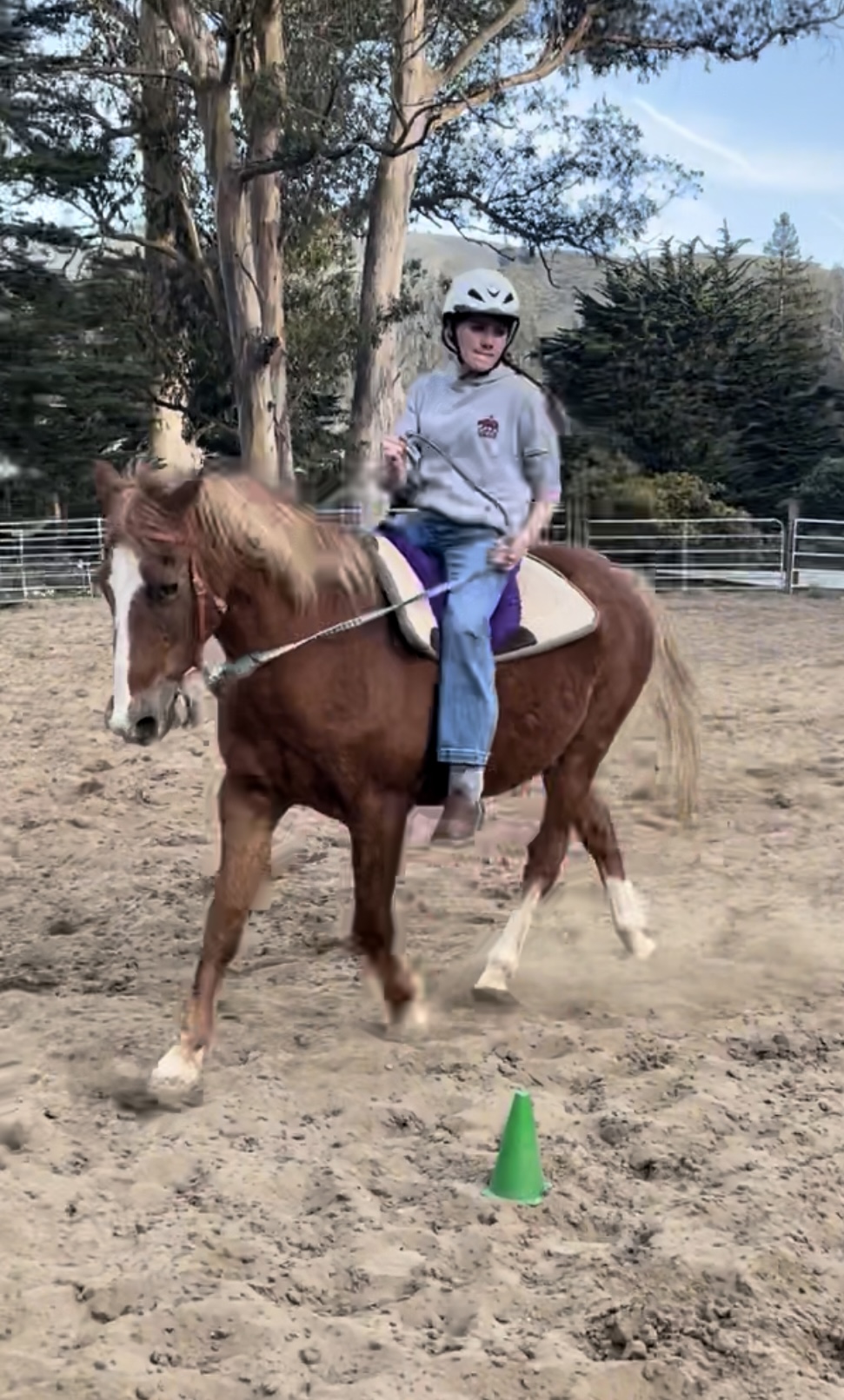
Senior Bella Musich’s heart pumped with anticipation as she tugged the reins of her horse, riding out the last turn. Every second counted. Eventually, the pair managed to finish the course in 45 seconds, a new record for Musich.
This thrilling sport is called barrel racing, and Musich has participated in it since the beginning of the pandemic.
In barrel racing, a cloverleaf pattern of three large barrels is set up, and the rider’s goal is to go around the barrels in the fastest time possible. If they hit a barrel, time is added.
No one in her family has participated in barrel racing before.
“[My] dad’s best friend is a rodeo clown,” Musich said. “So, I got into [barrel racing] just through mutual connections.”
To train, Musich goes to a barn in Half Moon Bay four to five times a week.
“Training is pretty time–consuming, especially when you have a horse [that] you don’t have that many connections with,” Musich said. “[It] can be very dangerous because most horses are very touchy. If you touch them the wrong way, they will throw you [and] kick you. It’s very time consuming, but it’s worth it.”
The first time when Musich tried to ride on her horse, Mustang, she had quite a difficult time.
“It was really hard at first to connect because [the horse can] sense your emotions, so if you’re scared they will become scared,” Musich said. “I was really timid because I didn’t want to do anything wrong that would spook him. [Later, I gained] more confidence and [realized] that if I’m okay, he’ll be okay.”
The connection between the rider and their horse is imperative during races. Musich stays in sync by being mindful of Mustang, and not just herself.
“[If] he’s not wanting to do something, if he’s uncomfortable [or] if he’s going to pull back, [I] give him some space,” Musich said.
Most of the training time is used for building a relationship with the horse, not riding him. Since Musich leases her horse, it’s not easy to solidify that relationship.
“I think the most rewarding part is seeing everyone around me light up with excitement”
“I spend 99% of my time actually off my horse and hanging out with him, feeding him [and] grooming him,” Musich said.
Even after putting in these efforts, injuries can still happen.
“I’ve been thrown a couple of times,” Musich said. “I’ve gotten concussions, but it gets better as you go.”
Despite being a potentially dangerous sport, Musich continues to barrel race to feel a sense of accomplishment.
“I think the most rewarding part is seeing everyone around me light up with excitement because it’s not a very common sport,” Musich said. “So it’s really wonderful [to the] relief that [my horse and I] feel when we know that we did it right.”
Barrel racing also helps her with motivation.
“When I’m having those days [where] you don’t want to do anything, going to see him always gives me that motivation to keep going,” Musich said. “I know I have to get up and do something for him because he’s not going to live if [no one] helps him. So it’s really a good motivator and it keeps me happy.”
There are certain characteristics that are associated with barrel racers.
“I, as a barrel racer, [am] known for living on the edge,” Musich said. “‘You live faster than you breathe,’ [is] one thing that we get told a lot.”
Musich further embraces her identity as a barrel racer through the way she dresses.
“I wear boots and hats all the time [because] it’s just something … I grew up [with],” Musich said. “I have 15 pairs of boots. I have a lot of hats [and] it is just something that I grew to love. A lot of people at my barn … all do [that], and I embrace it.”
Musich plans to continue barrel racing in college and further create special bonds with horses.



